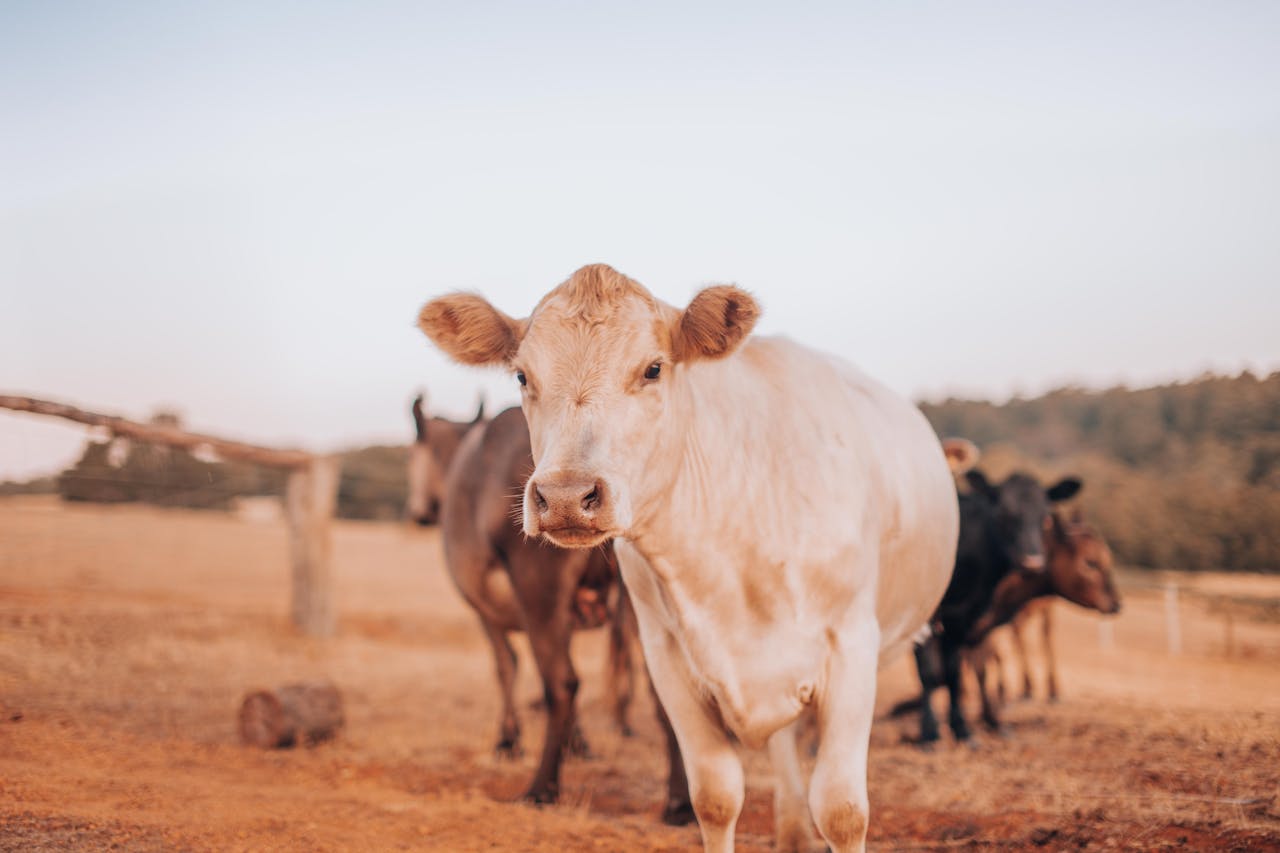Beef’s impact on the rainforest is no secret. In fact, a 2024 report from Global Forest Watch found that clearing land for beef production drives deforestation five times more than any other industry.
This is bad news for the climate. Mature trees absorb around 48 pounds of carbon dioxide per year, but when they’re cut down, that stored carbon is released back into the atmosphere. On top of this, deforestation also devastates wildlife by destroying vital habitats.
Now, new research from the University of Cambridge suggests the damage may be even worse than previously thought. After studying rainforests, cattle pastures, and nearly 1,000 bird species across Colombia, researchers found that biodiversity loss is 60 percent greater than earlier estimates.
 Pexels
Pexels
“This is a really surprising result,” David Edwards, PhD, of the University of Cambridge’s Department of Plant Sciences and Conservation Research Institute, said in a statement. “We found that the biodiversity loss caused by clearing rainforest for pastureland is being massively underestimated.”
The study also found that large areas of forest are being cleared for other crops, including sugar cane, palm oil, and coffee.
“The food we eat comes with a much greater environmental cost than we thought. We need policymakers to think much more about the larger-scale biodiversity impact of deforestation.”
Are plant-based meats the answer?
Not all foods carry the same environmental burden.
In 2022, a study from the Potsdam Institute for Climate Impact Research found that replacing just 20 percent of beef consumption with fungi-based alternatives, such as products made by the British brand Quorn, could cut deforestation in half by 2050.
 Quorn
Quorn
“The food system is at the root of a third of global greenhouse gas emissions, with ruminant meat production being the single largest source,” said the study’s lead author Florian Humpenöder. “The substitution of ruminant meat with microbial protein in the future could considerably reduce the greenhouse gas footprint of the food system.”
Other plant-based brands, including Beyond Meat and Impossible Foods, which use pea protein rather than fungi, also emphasize their environmental benefits. In 2018, the University of Michigan’s Center for Sustainable Systems found that the Beyond Burger generates 90 percent fewer greenhouse gas emissions than beef and uses 93 percent less land.
These sustainability advantages helped plant-based meat gain rapid traction in recent years. But lately, momentum has slowed, largely due to growing concerns around ultra-processed foods (UPFs).
Should we be concerned that plant-based meats are ultra-processed?
Most plant-based meats are classified as UPFs due to the industrial processing required to replicate meat’s structure, texture, and taste. But that doesn’t mean they’re inherently harmful, experts say. The conversation around UPFs requires some nuance.
“If carefully chosen, these foods can be a valid and helpful way to shift toward more plant-forward diets, which are good for people and the planet,” said Roberta Alessandrini, PhD, a nutrition scientist who recently co-authored a report on plant-based meats with the Good Food Institute and PAN International, where she leads the Dietary Guidelines Initiative.
 Beyond Meat
Beyond Meat
BECOME A VEGNEWS VIP: Get exclusive product deals, freebies, and perks galore!
“Plant-based meat is often considered UPF, but differs from the broader group in several ways,” the report notes. “Unlike most UPFs, plant-based meat is generally low in sugar and saturated fat, high in protein, and a source of fiber.”
A growing body of research supports the health benefits of plant-based meats, especially when compared to animal products. A 2023 study found that substituting fungi-based meat for red or processed meat may even reduce the risk of colon cancer.
“With official dietary advice encouraging reduced meat consumption for health and environmental reasons, alternatives like Quorn’s mycoprotein—which is high in protein and fiber, low in saturated fat, and free from trans fats and cholesterol—are critically important,” said Tim Finnigan, Scientific Advisor for Quorn Foods.
In 2024, a review published in the Canadian Journal of Cardiology also concluded that plant-based meats, often lower in saturated fat than their animal counterparts, can help lower cholesterol and improve heart health.
“Animal products not only have too much saturated fat but lack polyunsaturated fats, fiber, and many of the minerals and vitamins found in plants.”
Many experts aren’t surprised. “The fat composition of beef is so undesirable for health that it’s very easy to be better than that,” said Walter Willett, MD, DrPH, a leading Harvard nutrition expert.
But essential nutrients, he added, can be included in plant-based alternatives. “We need to look at each of these novel products on its own merits.” Not just for our health, but for the planet as well. “There’s such great urgency related to climate change, environmental degradation, and public health that we need to give people as many options as possible,” Willett said.
For more plant-based stories like this, read:
JUMP TO ... Latest News | Recipes | Guides | Health | Subscribe









